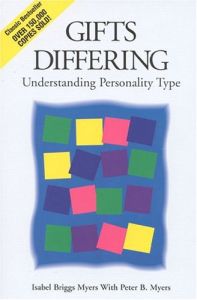Join getAbstract to access the summary!

Join getAbstract to access the summary!
Isabel Briggs Myers and Peter B. Myers
Gifts Differing
Understanding Personality Type
Nicholas Brealey Publishing, 1995
What's inside?
Unlock the mystery of the Myers-Briggs Type Indicator by understanding its results.
Recommendation
Isabel Briggs Myers, who had no training as a psychologist, broke new ground when she applied Carl Gustav Jung’s psychological types to healthy individuals. She writes that each person has unique innate gifts, and that makes human interaction singular and challenging. This classic textbook – though repetitive, scholarly and laden with technical tables – can help you understand how to deal with personality types that differ from your own. Briggs Myers (in collaboration with her son, Peter B. Myers, who wrote the preface) developed this text as an outgrowth of the Myers-Briggs Type Indicator, which she created with her mother, Katherine Cook Briggs, to help place women in jobs when World War II took most able-bodied men out of the US workforce. Most of its information is enduringly useful, though the chapter on marriage seems mired in an earlier time. getAbstract recommends this book’s insights and communication lessons; it can help readers better understand themselves, their bosses, their staff and their loved ones.
Summary
About the Authors
Isabel Briggs Myers co-created the Myers-Briggs Type Indicator, a popular personality measurement tool. Her son Peter B. Myers, researches the development and application of personality type. Former staff director of the National Academy of Science, he is extending the use of the MBTI(R) instrument worldwide.
















Comment on this summary